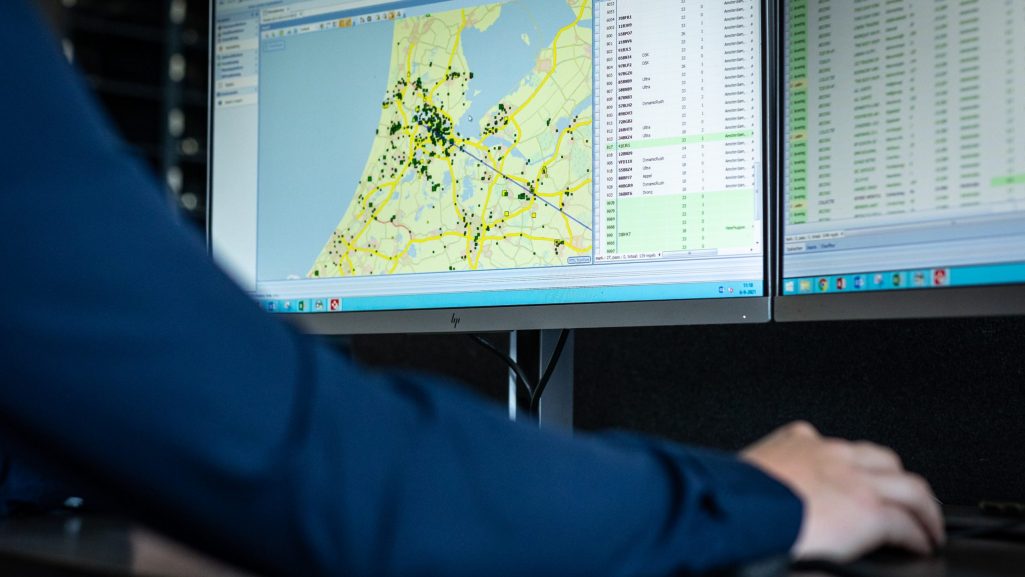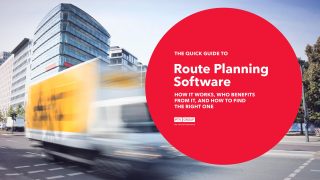Reason 1: We have highly experienced planners
You see them at every transport company: planners with years of experience who know all their customers and drivers. They know exactly what is and what is not possible and they keep everyone happy. Transport companies are allowed to squeeze their hands with such planners. They score a seven every day with their route planning without having to use expensive software.
But why be content with a seven? What’s wrong with an eight or a nine? A route planning system is not a replacement for the planner, but a tool. A tool that calculates routes faster than the best mathematician, doesn’t overlook any restriction and sees opportunities for optimisation that no planner thinks of. It is precisely the combination of the smart journey planning system with the experienced planner that makes it possible to score a nine every day. This also saves you time and allows you to focus on complex planning issues.
Reason 2: Our TMS already has a planning module
We regularly receive a personal demonstration of the current planning method, often via a TMS. We often see a graphic planning board that indicates how full a route is. Planners can drag and drop orders to check whether they fit or not. In this way they can plan all trucks order by order. What more could a planner want?
The answer to that last question is: plan even faster and better. Planning with a TMS requires a lot of manual dragging and thinking and therefore takes a lot of time. The planner can only optimise one trip at a time and does not know that a different distribution of orders over the trips would probably have been more efficient. A route planning system, on the other hand, calculates hundreds of options in a few seconds and generates the most suitable plan proposal. This is by definition a proposal that meets all requirements with regard to window times, loading meters, vehicle specifications, driver characteristics and other restrictions. The planner only needs to fine-tune that proposal.
Reason 3: We are too small for a route planning system
The UK has many small and medium-sized transport companies. The number of trucks can often be counted on the fingers of a few hands. Isn’t an advanced planning system overkill? What does such a system cost?
The question is not how much a route planning system costs, but how quickly it pays for itself. Even for small and medium-sized transport companies, this is often faster than they think. After all, it is not the size of the vehicle fleet that determines the payback period, but the complexity of the operation. Think of journeys with many stops and many time deliveries that also have to meet all kinds of restrictions.
Reason 4: We don’t have time for implementation
Within many transport companies, the hectic pace of the planning department can be detected immediately upon arrival. They are busy with other projects or solving daily recurring problems. The time and attention required to implement a route planning system is lacking. Logical, because the daily operation deserves priority. That’s how the money is now being made.
Sometimes, though, it’s better to stop and think about the future. Then it turns out that it might be better to invest extra time in a route planning system. Such a system actually helps to restore calm within the company, so that planners have time for other activities. All too often we notice that the company may have to take a step back for a while, but then takes two very big steps forward.
Reason 5: Our operation is too complex
We see the complexity within transport companies increase from year to year. Customers are making increasingly higher demands and at the same time expect cost reductions. The number of restrictions is increasing, such as timed deliveries and environmental zones. Meanwhile, transport networks with additional depots and additional partners with who orders are exchanged. All those restrictions and other conditions are constantly changing. It is impossible to record all this in a route planning system, isn’t it?
No, that is certainly not an impossible task. In fact, a route planning system is specifically intended for these kinds of situations. Over time, within many transport companies, planning becomes too complex to be done manually. Software then offers a solution. An additional advantage: the planners have more time, including for recording all restrictions, specifications and other conditions. That way they can make a difference.

